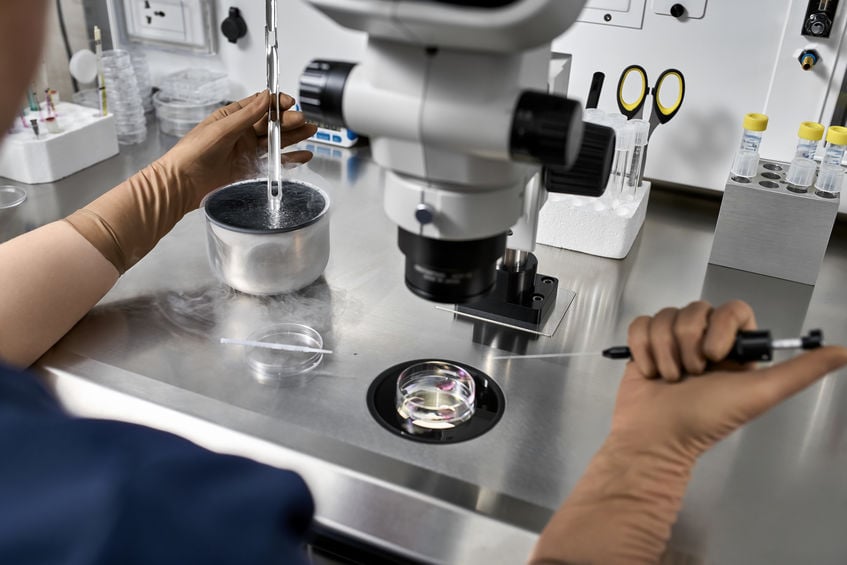PCOS And Pregnancy
When a person hears the term polycystic ovary syndrome (PCOS), infertility often comes to mind. Although PCOS can negatively affect fertility, pregnancy is still possible. The challenges of irregular periods and hormonal imbalances can be overcome with the use of fertility treatment. In vitro fertilization (IVF) and intrauterine insemination (IUI) are great options for women with PCOS who want to become pregnant.

Understanding PCOS
Polycystic ovary syndrome is incredibly common, affecting about 1 in 10 women of childbearing age. Symptoms can include an irregular or absent menstrual cycle, acne, increased hair or thinning hair, darkening of the skin, weight gain, and skin tags. Women with PCOS typically have increased androgen production, which can lead to irregular cycles, unpredictable ovulation, and ovarian cysts. PCOS is also the most common cause of infertility in women.
Lifestyle improvements
Approximately 70-80% of women with PCOS will experience infertility. Although this rate is high, solutions exist. Lifestyle changes are always recommended as a first-line treatment. More exercise and less sedentary behaviors are encouraged. A healthy diet low in processed foods and sugar can also help. Some women take a more natural approach, using supplements to regulate the cycle. Inositol, vitamin D, and vitamin B12 may improve ovulation rates.
Moving on to ART
Assisted reproductive technology (ART), such as IVF and IUI, can help achieve a healthy pregnancy. With both procedures, medication is used to regulate the cycle and stimulate egg production. During IUI, a cleaned and concentrated sperm sample is injected into the uterus at an optimal time in the cycle. IVF is more involved and occurs in 2 stages. First, the woman undergoes an egg retrieval, where the mature eggs are extracted. The eggs are then combined with sperm in a lab to create an embryo. Once the couple is ready, the embryo is transferred directly into the uterus. Testing for pregnancy can take place approximately 2 weeks later.
IUI vs IVF
Many women have questions about whether IUI or IVF is better for getting pregnant with PCOS. Although both approaches are effective, IVF is considered the gold standard. With IVF, prescription medications can be used to correct any cycle irregularities and balance hormones, leading to higher chances of success. Embryos retrieved during IVF can also undergo additional testing, such as preimplantation genetic testing (PGD), before being transferred to decrease the risk of genetic problems and miscarriage and increase the chances of a successful pregnancy.
Is IUI ever an option?
Some women with PCOS may benefit from IUI. A doctor may recommend this treatment if the patient is younger and has a good ovarian reserve. Intrauterine insemination may also be preferred by women who have previously had success with the procedure despite having PCOS, and couples looking for a less invasive or more cost-effective option.
Choose your fertility path
Whether pursuing IUI or IVF, women with PCOS can get pregnant. The condition is a known cause of infertility, but ART can help. If PCOS is interfering with pregnancy plans, speak with a healthcare provider to determine the best path to parenthood.





